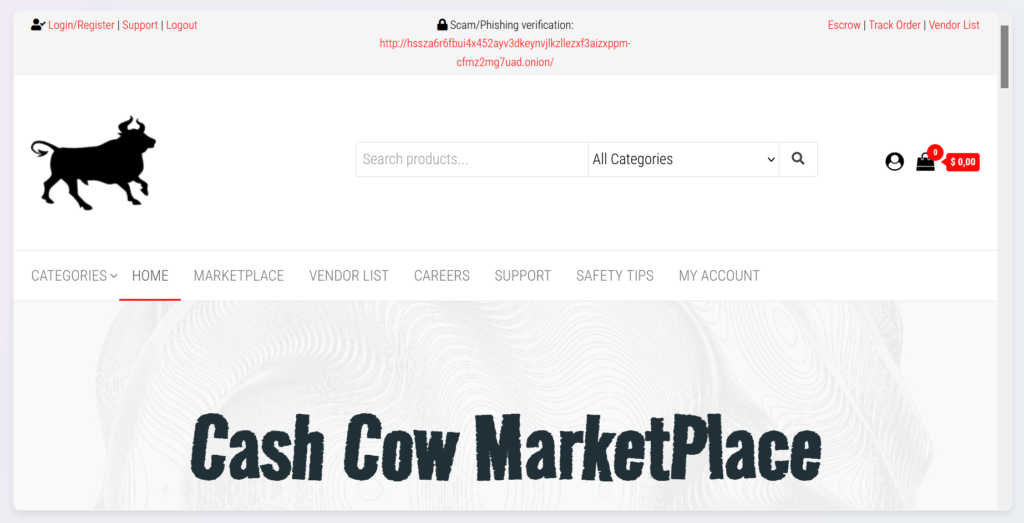Table of Contents
ToggleCashCow – TOR Scam Report (9)
Onion Link: http://hssza6r6fbui4x452ayv3dkeynvjlkzllezxf3aizxppmcfmz2mg7uad.onion/
Scam Report Date: 2023/08/10
Client Scam Report Breakdown
Original Report Summary:
The complainant begins by expressing their need for additional funds, stating, “Hello, I was trying to get some extra money because I was low on funds and saw this site to get some money on Cash App.” They further explain that they contacted both the seller and the support team for a service called “Cash Cow” but received no response: “I contacted the seller and the support for Cash Cow and heard nothing.” The user also mentions a lack of confirmation: “I haven’t even received a confirmation email.” Finally, they express their suspicion of being scammed and provide a transaction ID related to a Bitcoin transfer: “I think I was scammed. The TX ID for bitcoin sent is: cd2d701a3fd87f6a2573a20c34bc8bd2cb84ff617c67fa9e1a563694a5d055da.”
Photos:


Defining Terminology and Terms
Several terms and concepts in the report are crucial for understanding the situation. First, “Cash App” refers to a popular mobile payment service developed by Square, Inc., allowing users to transfer money to one another using a mobile phone app. “Cash Cow” in this context appears to be the name of a purported service or website promising financial returns, although its legitimacy is questionable based on the complainant’s experience.
The complainant’s mention of contacting both the seller and support highlights two potential points of communication failure. “Seller” refers to the individual or entity purportedly offering the financial service, while “support” likely refers to customer service or technical support for the Cash Cow service. The lack of a “confirmation email” is significant because it indicates that no official acknowledgment of the transaction was provided, which is a common red flag in scam situations.
The “TX ID” refers to a transaction identification number, a unique string of characters assigned to a particular transaction on a blockchain network, in this case, Bitcoin. This ID allows anyone to look up the details of the transaction on the blockchain to verify its existence and status. The specific TX ID provided (cd2d701a3fd87f6a2573a20c34bc8bd2cb84ff617c67fa9e1a563694a5d055da) can be used to investigate the transaction further, potentially revealing whether the funds were received by the intended recipient or if there are any irregularities.
Analysis and Implications
From the provided information, several key implications can be drawn. The complainant’s experience aligns with common characteristics of online scams, such as unresponsive contacts and the absence of confirmation emails. The use of Bitcoin for the transaction is noteworthy; while cryptocurrencies offer certain advantages like fast and low-cost transactions, they also come with risks, particularly regarding fraud and the difficulty of reversing transactions once they are completed.
The complainant’s inability to receive a response from both the seller and the support team is a significant red flag. In legitimate transactions, customer support should be accessible and responsive to inquiries. The absence of a confirmation email further exacerbates the situation, as legitimate services typically send immediate confirmations to assure users that their transaction is being processed.
To address the situation, the complainant can take several steps. First, they should use the provided TX ID to check the status of the Bitcoin transaction on a blockchain explorer. This can confirm whether the funds were transferred successfully and to which address. If the transaction appears legitimate on the blockchain but no response is received from the seller or support, the complainant should consider reporting the incident to the platform used for the transaction (e.g., Cash App) and possibly filing a complaint with relevant authorities or consumer protection agencies. This case underscores the importance of vigilance and skepticism when dealing with online financial opportunities, especially those involving cryptocurrencies.







